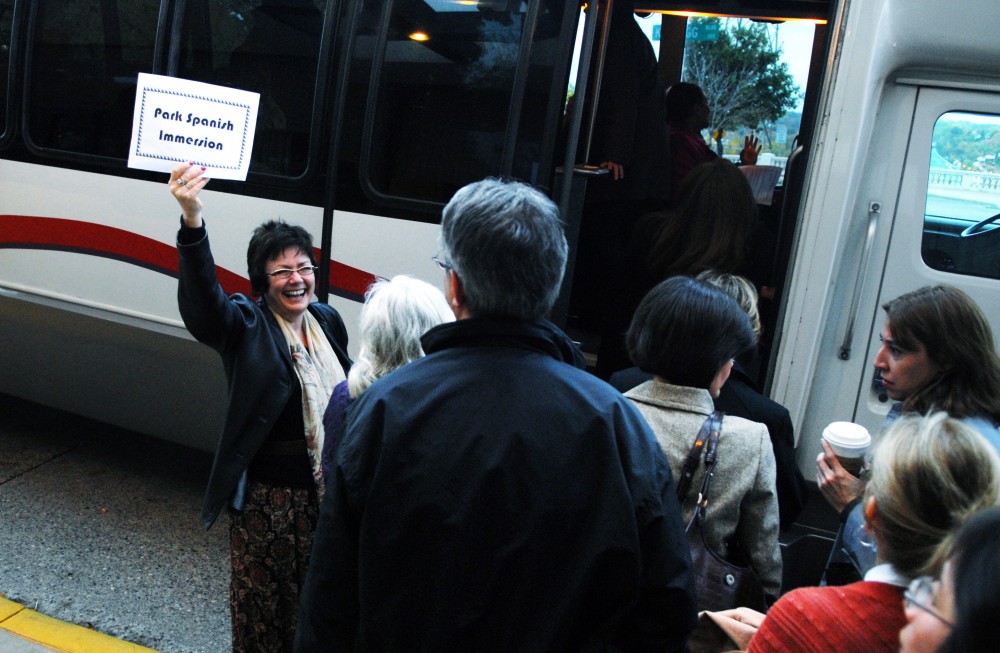Educators from places as far-reaching as New Zealand Finland will be in the Twin Cities this week to discuss their ideas on helping students become multilingual. The three-day conference, called âÄúPathways to Bilingualism & Beyond,âÄù kicks off Thursday, and is being held at the Crowne Plaza Hotel Riverfront in St. Paul. This yearâÄôs conference is the third of its kind. Both the UniversityâÄôs Center for Advanced Research on Language Acquisition, as well as the Center for Applied Linguistics in Washington, D.C. are leading the event. CARLA Immersion Projects Coordinator and conference co-chairwoman Tara Fortune said more than 600 people from around the world are scheduled to attend. CAL President Donna Christian worked with Fortune and a planning committee on the logistics of the conference. Christian said CAL has a considerable number of resources related to two-way language immersion, in which native speakers of two different languages are taught side by side in classrooms. By comparison, Christian said, CARLA focuses in some ways on one-way immersion, so the two groups were able to combine their resources. âÄúThis is the one place where individuals who are working with the various kinds of immersion can come together and share experiences,âÄù Christian said, âÄúand that’s going to be very exciting to participate in.âÄù The conference will focus on four specific themes relating to immersion education: Teaching practices, cultural issues of identity, advocacy issues and program design for language immersion. Fortune said CARLA and the University of Minnesota face several challenges that could be addressed at the conference. One, she said, is to figure out the best way for University to train teachers to teach in immersion programs at the early elementary level. On Wednesday morning, Fortune took about 120 conference attendees on a tour of some language immersion schools in the state, including the Park Spanish Immersion School in St. Louis Park. The elementary school is part of the cityâÄôs public school district and is designed for children of families who donâÄôt speak Spanish. While all classes are taught in Spanish, students are allowed to use English. Even so, teachers still respond in Spanish only. School Principal Ursina Swanson is one of the speakers at this weekâÄôs conference. She said it is critical in todayâÄôs job market to be bilingual or multilingual, and that learning a second language from an early age is âÄúabsolutely essential.âÄù âÄúYou need to start foreign language learning in elementary school,âÄù Swanson said. âÄúIf you can get your regular curriculum that you would at any school, plus become fluent in another language, why wouldn’t you do it?âÄù Swanson said a key issue the school faces is âÄúcommunicating what we do to the greater community.âÄù Spanish and Portuguese Studies professor Joanna OâÄôConnell, whose daughter became bilingual in Spanish through two-way immersion, said if there are the right kinds of resources, immersion language education is an âÄúoutstandingâÄù opportunity. âÄúBy the early and repeated exposure and education in another language, [children] develop proficiency as adults that we have a hard time matching,âÄù OâÄôConnell said. âÄúThatâÄôs just a biological fact.âÄù

Image by Ali Haupt
CARLA in downtown st. paul
Immersion language conference to be held in St. Paul
Published October 15, 2008
0
More to Discover







